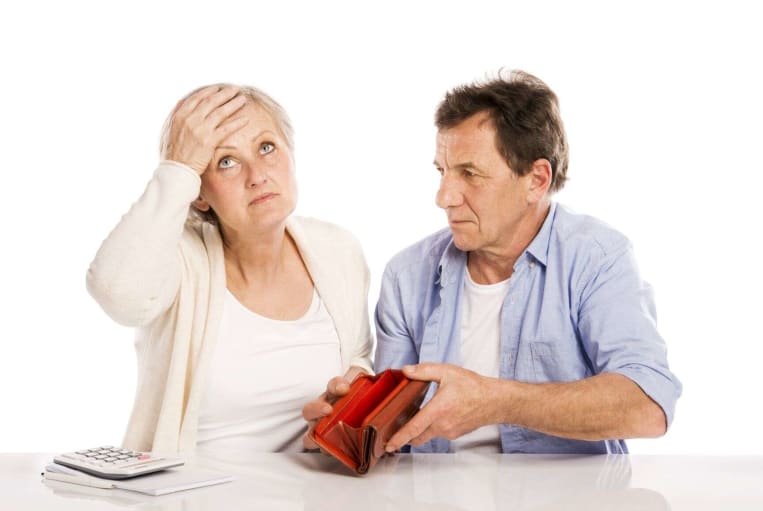
BBB Study Update: 80% of money lost in sweepstakes, lottery, and prize scams is from consumers over 65

(Getty Images)
Sweepstakes, lottery and prize scams have not lessened their financial and emotional harm, despite concerted law enforcement efforts, according to the latest data from Better Business Bureau (BBB), the Federal Trade Commission (FTC) and the Internet Crime Complaint Center (IC3). This fraud is especially devastating to older adults in the United States and Canada. BBB cautions this group to be particularly vigilant about recognizing and avoiding tactics used by scammers to prey on people during the COVID-19 crisis.
BBB issued an in-depth investigative study on sweepstakes and lottery scams in June 2018. In the two years since the study was issued, BBB Scam Tracker reports on this type of scam have declined somewhat, but complaints to the FTC and IC3 have held fairly steady, both in number and in reported financial losses.
Adults age 65 and older remain overwhelmingly the largest group victimized by these scams. Of the 4,417 sweepstakes and lottery scams reported to BBB Scam Tracker since 2018, nearly half, or 1,980, came from victims over the age of 65. This age group lost $2.52 million of the $3.1 million in losses reported to Scam Tracker, representing more than 80% of money lost by Americans and Canadians to this fraud.
Combined FTC and IC3 complaints reflect losses of $112 million in 2017, $182.6 million in 2018 and $170.4 million in 2019.
The law requires players to purchase a ticket to play the lottery, but a legitimate lottery or sweepstakes will never ask its winners to wire money or buy gift cards to claim the prize. Fraudsters continually find new ways to prey on older people who are dreaming of a big win or a financial windfall in their golden years.
Recently, scammers have updated their sales pitch to include COVID-19 twists. According to Scam Tracker reports, scammers are discussing supposed COVID-19 safety precautions for prize delivery, and attributing delays in awarding prizes to the pandemic. One impostor scam, fraudulently used the Publishers Clearing House name in connection with a bogus COVID-19 Census Grant. It allowed targeted victims to choose their winnings by the amount of fees they were willing to pay. Using social media, scammers publish a list of supposed winners and invite people whose names are not on the list to provide personal information and choose their award level.
Many sweepstakes and lottery scams continue to originate from Jamaica, as reported in the original study. This is particularly true of cold calls over the phone. However, scammers may reach out by phone, email, U.S Postal Service or even social media. U.S. postal inspectors say now many victims are being instructed to mail cash to scammers. Besides offering fake cash prizes, scammers may also lure victims by claiming victims will receive luxury cars, laptops or other high-end merchandise.
An older man in Branson, Missouri, told BBB he received a call from Jamaica during the COVID-19 pandemic, informing him he had won a $8.5 million MegaMillions prize and a Mercedes-Benz car. He was told $85,000 in taxes had already been paid on the winnings, but he would need to pay $500 in lawyer fees to receive the prizes. Over the next four months, various callers asked the man to purchase $6,500 in gift cards from eBay, Walgreens, Walmart and Best Buy, which he did. The man said not only did he not receive the prize, he suffered three heart attacks within one month before telling the scammers to stop calling and reporting them to BBB.
“They won’t stop calling me,” he told BBB. “Last week, I got a call from Publishers Clearing house saying they were investigating victims of scams by (the name of the scammer). Then they asked me to get an eBay card for $150. I said ‘Scam!’ and hung up.” (The caller was an impostor, not the real Publishers Clearing House.)
People who have become victims of sweepstakes scams are likely to be contacted again by scammers.
Many lottery scam victims keep sending money for weeks or months, thinking that each step is the last one before they get their winnings.
A Dallas, Texas, woman told BBB she lost $150,000 and her home, job and credit after a man from Jamaica called her in June 2018 to tell her she had won a $9 million prize. “Started out to be a small prize, and within several days, the prize became a whopper,” she wrote to BBB. “I fell for it.”
The woman said she dealt only with the initial caller for two years and usually paid by gift card. She told BBB she broke off communication when the fraudster attempted to involve her in other scams.
Law enforcement officials have prioritized sweepstakes and lottery scams, with dozens of cases prosecuted since 2018 in both the U.S. and Jamaica. These prosecutions have included not only scammers themselves, but victims who agreed to become part of additional scam activity. While these “money mules” typically are not prosecuted if they were unaware of their own participation in scams, known accomplices have been the target of government action.
Additionally, the U.S. Department of Justice has been active in targeting and prosecuting scams that victimize seniors. It conducts an annual Elder Fraud Sweep, which netted more than 400 accused scammers worldwide in 2020 and more than $1 billion in reported financial losses. The Transnational Elder Fraud Strike Force, a joint effort by several federal agencies, was established in 2019 and is aggressively prosecuting defendants caught in the sweep.
Tips for detecting and avoiding sweepstakes, lottery or prize scams:
- You’ve got to play to win. A notification that you have won a prize in a contest you do not remember entering should be a red flag. If you do regularly enter contests or sweepstakes, make sure you keep track of your entries so you can easily check to see if you have actually entered a contest that contacts you.
- True lotteries or sweepstakes don’t ask for money. If they want money for taxes, themselves, or a third party, it most likely is a scam.
- Call the lottery or sweepstakes company directly to see if you won. According to Publishers Clearing House (PCH), it does conduct sweepstakes but does not call or email people in advance to tell them they’ve won a major prize, nor asks for money. Report PCH imposters to their hotline at 800-392-4190.
- Check to see if you won a lottery. Call the North American Association of State and Provincial Lotteries at 440-361-7962 or your local state lottery agency.
- Do an internet search of the company, name, or phone number of the person who contacted you.
- Law enforcement officials do not call and award prizes. If you think you have been contacted by law enforcement, verify the identity of the caller and do not send money.
- Talk to a trusted family member or your bank. They may be able to help.
Where to report a sweepstakes, lottery or prize scam:
- Better Business Bureau: BBB Scam Tracker at bbb.org/scamtracker
- Federal Trade Commission (FTC): ftc.gov/complaint or 877-FTC-Help
- Internet Crime Complaint Center (IC3): ic3.gov/complaint/default.aspx
- Canadian Antifraud Centre: 888-495-7597
- United States Postal Inspection Service: postalinspectors.uspis.gov or 1-877-876-2455. Postal Inspectors may be able to help if scammers used the mail service in any part of the fraud. They also have counselors trained to help repeat or chronic victims. Call your local postal inspection office to see if they can provide counseling assistance.
- Senate Subcommittee on Aging Fraud hotline: 1-855-303-9470
- Adult Protective Services helps older adult victims or other vulnerable adults and has offices in every state and many counties. Find a local office at elderjustice.gov.
To read up on some general tips for avoiding scams, visit BBB.org/AvoidScams.
If you’ve been the victim of a coronavirus related scam, please report it on the BBB.org/ScamTracker. Your report can help others to stay alert and avoid similar scams.
Read more about BBB Accreditation Standards and BBB Standards for Trust.
Related News
Still Need Assistance?
Contact Your Local BBB
Your local Better Business Bureau can assist you with finding businesses you can trust. Start With Trust®.
Additional Resources
Central Ohio BBB Business Podcast


